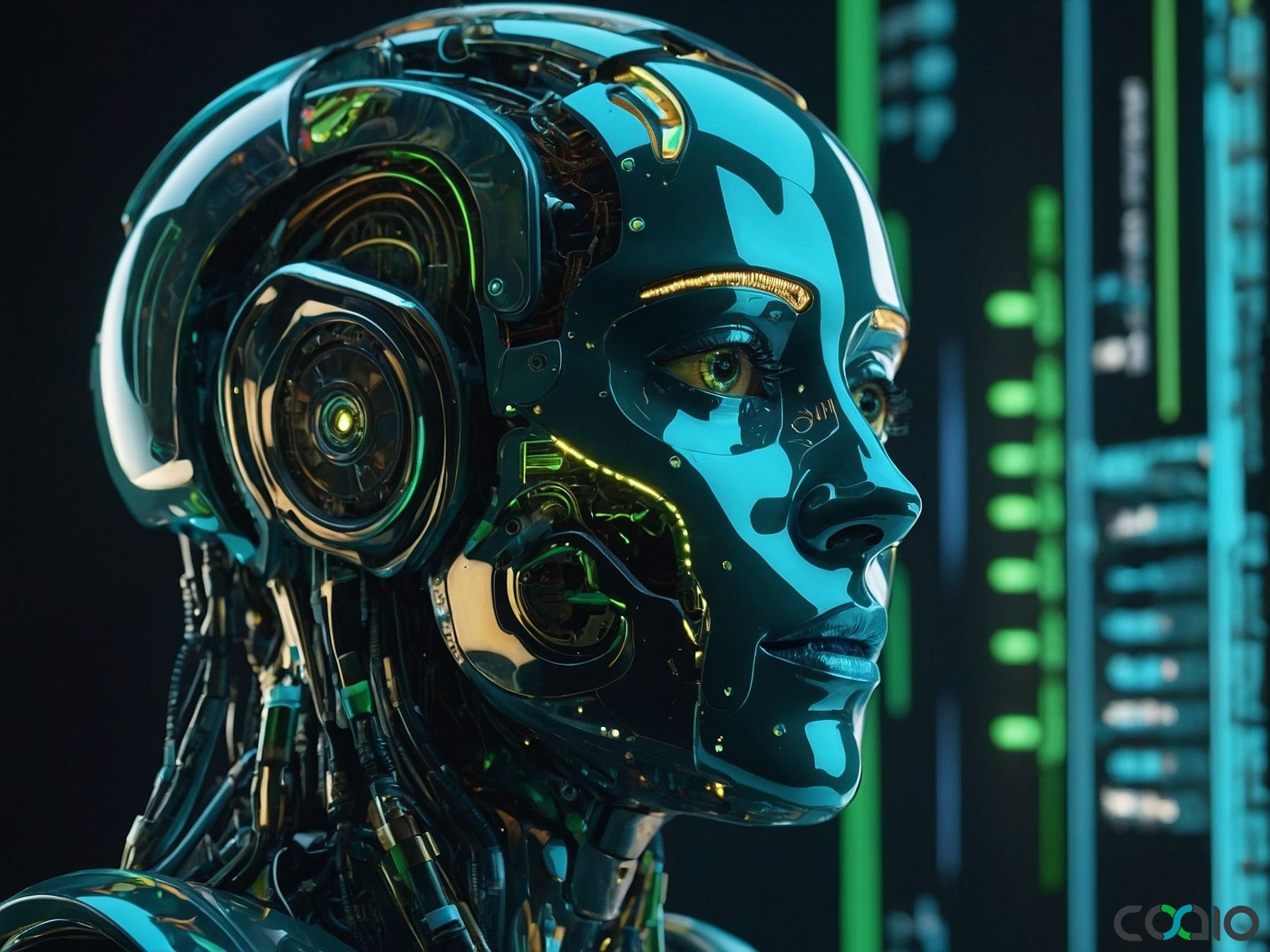
Breaking Tech Frontiers: Software Development's Role in Innovation and Security in 2025
As we dive into the tech landscape on October 29, 2025, the intersection of software development with emerging trends in automotive, energy, and startup ecosystems is more evident than ever. From innovative concepts in sustainable vehicles to critical security patches in major corporations, today’s news highlights how software is the backbone of technological progress. This roundup explores key stories that underscore the evolving role of software in driving efficiency, security, and creativity, all while addressing real-world challenges.
The Rise of Eco-Friendly Tech in Automotive Software
One of the most exciting developments in the tech world comes from the automotive sector, where Mazda unveiled a rotary hybrid concept at the Tokyo Motor Show. This concept not only showcases an evolved design language but also integrates advanced software systems for environmental sustainability. According to Ars Technica, Mazda’s ideas include the use of algae-based fuels and innovative carbon capture technology that pulls CO2 from vehicle exhaust during operation Read more.
At its core, this innovation relies heavily on sophisticated software algorithms for real-time monitoring and optimization. For instance, the hybrid system’s software must seamlessly integrate sensors, AI-driven predictive analytics, and machine learning models to manage fuel efficiency and emissions. This level of complexity demonstrates how software development is pivotal in creating smarter, greener vehicles. In an era where climate change demands rapid technological adaptation, developers are focusing on scalable code that can handle vast data streams from IoT devices in cars. This not only enhances user experience but also sets a precedent for future automotive software, potentially influencing everything from autonomous driving to personalized vehicle interfaces.
The implications for the industry are profound. As automakers push boundaries, software engineers are tasked with building robust systems that can evolve with regulatory changes and consumer expectations. For example, the algae-based fuel system likely involves custom software for biochemical simulations, requiring interdisciplinary collaboration between environmental scientists and coders. This trend underscores the need for agile development practices, where rapid prototyping and iterative testing ensure that innovative ideas translate into market-ready products. In essence, software development is no longer just about writing code; it’s about engineering solutions that address global challenges like sustainability.
Security Vulnerabilities and the Imperative of Robust Software Practices
Shifting gears to cybersecurity, Tata Motors recently confirmed that it has addressed significant security flaws that exposed sensitive data, including customer information, internal reports, and dealer details. As reported by TechCrunch, a security researcher identified these vulnerabilities, prompting the company to act swiftly Read more.
This incident is a stark reminder of the critical role software development plays in protecting data in an increasingly connected world. In the automotive industry, where vehicles are essentially computers on wheels, software vulnerabilities can lead to breaches that compromise not just business operations but also personal privacy. Tata’s response involved patching these flaws, likely through updated encryption protocols, enhanced access controls, and regular security audits—standard practices in modern software engineering.
The broader lesson here is the importance of integrating security into the software development lifecycle from the outset. Developers must employ methodologies like DevSecOps, which embeds security checks into every stage of coding and deployment. For instance, tools such as automated vulnerability scanners and code review processes can prevent exposure of personal data, as seen in this case. This event also highlights the risks associated with third-party integrations, where software from various suppliers must be harmonized to avoid weak points.
In the context of global supply chains, especially in regions like India and beyond, companies are investing in advanced software solutions to mitigate such risks. The Tata Motors story serves as a case study for how proactive software updates can avert potential disasters, emphasizing the need for ongoing education and adaptation in the field. As cyber threats evolve, software developers are at the forefront, crafting defenses that protect not only corporate assets but also the everyday lives of consumers.
Startup Innovation and the Software Ecosystem at TechCrunch Disrupt 2025
The startup world continues to buzz with energy, as evidenced by the announcement of the five finalists at TechCrunch Disrupt 2025. After intense days of live demos and pitches, these innovators represent the cutting edge of software-driven solutions Read more.
Software development is the lifeblood of startups, enabling them to turn bold ideas into viable products quickly and efficiently. The finalists likely include ventures leveraging AI, machine learning, and cloud computing to tackle problems in sectors like health tech, fintech, and beyond. For example, one finalist might be developing software for predictive analytics in supply chain management, using real-time data to optimize operations and reduce waste. This event showcases how software acts as a great equalizer, allowing small teams to compete with industry giants through innovative coding and rapid iteration.
Moreover, the startup battlefield illustrates the collaborative spirit of software development, where open-source tools and community-driven platforms accelerate progress. Entrepreneurs are increasingly adopting low-code and no-code development environments, which democratize software creation and allow non-technical founders to prototype ideas swiftly. This accessibility is crucial in a fast-paced market, where the ability to pivot based on user feedback can make or break a company.
As these startups scale, the challenges of managing complex software projects become apparent, from ensuring scalability to maintaining security. The Disrupt event also highlights the role of software in fostering economic growth, with implications for job creation and technological advancement. In 2025, with AI integration becoming standard, software developers are key players in shaping the future of innovation.
The Entertainment-Tech Crossover in Software Events
Tech events like TechCrunch Disrupt aren’t just about business; they’re also about culture, as seen in the surprise appearance of actor Thomas Middleditch from “Silicon Valley.” His planned takeover of Australian startup Othelia’s presentation added a fun, engaging element to the proceedings Read more.
This crossover demonstrates how software development influences entertainment and vice versa. Startups like Othelia, which might be working on software for creative industries, benefit from such high-profile endorsements, blending tech demos with pop culture. Middleditch’s involvement underscores the human side of software—how it’s not just code, but a tool for storytelling and connection. In an age of digital media, software powers platforms that enable virtual events, interactive content, and even AI-generated performances, making tech conferences more dynamic.
For software developers, this event is a nod to the importance of user-friendly interfaces and engaging experiences. Whether it’s developing apps for live streaming or tools for audience interaction, the fusion of entertainment and tech highlights the need for intuitive software design. It’s a reminder that behind every successful tech event is robust software infrastructure that ensures seamless execution.
Nuclear Energy and the Software Behind Massive Projects
Finally, turning to energy innovation, Westinghouse has announced a potential nuclear deal that could lead to $80 billion in new reactors, though details remain sparse Read more. This development points to the critical role of software in managing complex infrastructure projects.
In nuclear energy, software systems are essential for safety, simulation, and operational efficiency. From modeling reactor behaviors to monitoring radiation levels in real-time, advanced algorithms ensure that these projects meet stringent regulations. As the world shifts toward sustainable energy, software developers are instrumental in integrating AI for predictive maintenance and risk assessment, potentially preventing costly downtimes or accidents.
This deal exemplifies how software scales to meet global demands, bridging engineering and technology. With sparse details, it’s clear that transparent software documentation and collaboration will be key to success.
As we wrap up this exploration of today’s tech news, imagine a world where groundbreaking ideas flourish without the burden of technical hurdles. Picture founders channeling their passion into innovation, supported by streamlined processes that minimize risks and maximize efficiency. That’s the essence of turning visionary concepts into reality, where every line of code paves the way for success.
About Coaio
Coaio is a Hong Kong-based tech firm that specializes in outsourcing software development and building expert teams in Vietnam. We offer comprehensive services including business analysis, competitor research, risk identification, design, development, and project management, delivering cost-effective, high-quality software solutions for startups and growing companies. With a focus on user-friendly designs and seamless tech management, we serve clients in the US and Hong Kong, helping them bring ideas to life efficiently and with minimal hassle.
 English
English
 Français
Français
 Español
Español
 廣東話
廣東話
 中文
中文
 日本語
日本語
 한국어
한국어
 العربية
العربية
 Deutsch
Deutsch
